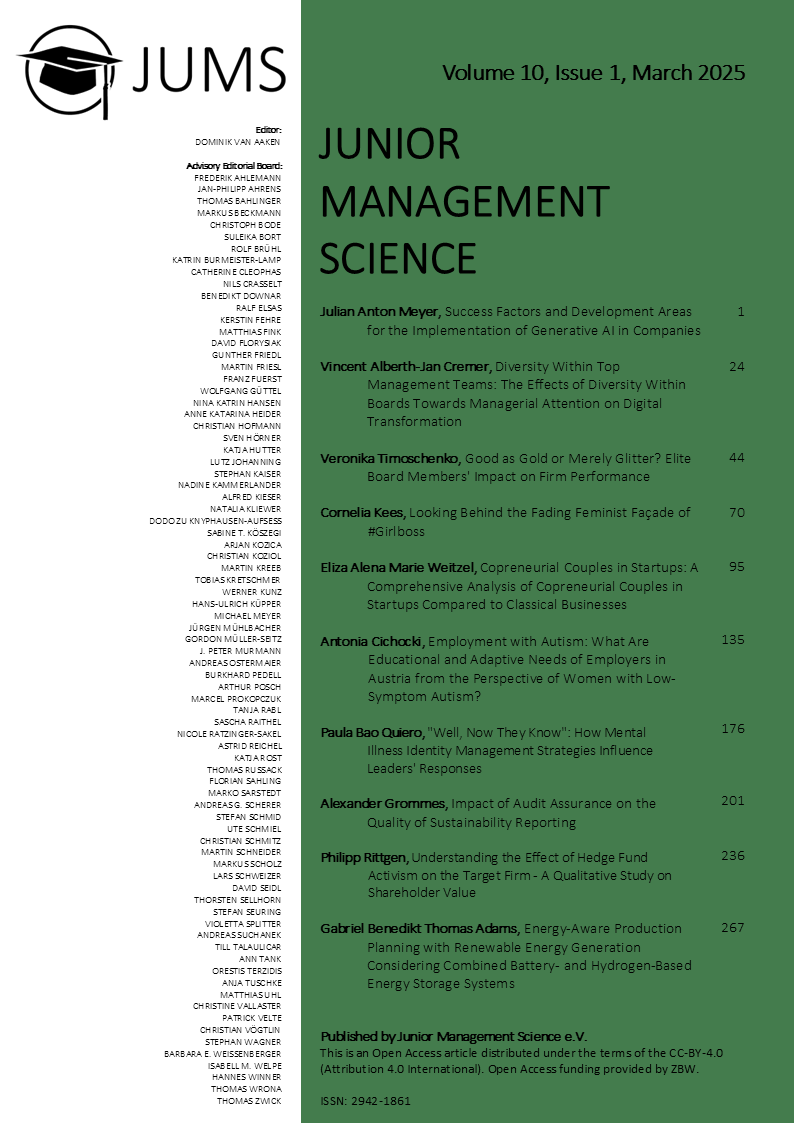Abstract
This thesis investigates the influence of elite supervisory board members on the performance of German firms. Following the transformation of the German business landscape post-reunification, elite board members, characterized by their exceptional social capital, continue to play a crucial role. Using resource dependence theory, the study explores the link between board members’ social capital and firm performance. Leveraging a yearly ranking of the top 30 most powerful supervisory board members to identify elite members, this thesis analyses their influence on firm performance. Contrary to expectations, the results show a significant negative impact of elite board members on accounting-based performance and no significant effect on market-based performance. The expected stronger effect of having an elite board chair was not supported. These findings encourage a reevaluation of the assumed benefits of elite board membership, suggesting underlying complex dynamics. The thesis concludes with implications for corporate governance, limitations of the study, and directions for future research.
Keywords: corporate governance; elite board members; firm performance; social capital; supervisory board

Dieses Werk steht unter der Lizenz Creative Commons Namensnennung 4.0 International.
Copyright (c) 2025 Veronika Timoschenko

